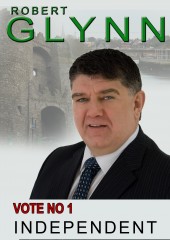
The National Bank is owned by the State and is the major source of credit in the economy outside the remaining private banks and other private lending institutions such as credit unions. However, as part of the new regime in banking, fractional reserves on deposits will be forbidden and as a result banks will have to come up with other ways to make money from their customers. A digression is necessary here in order to explain how banks create new money out of debt. Not many people know how this works. So, lets consider an accounting ledger with an asset column and a liabilities column - the double entry system, we can quickly get to the nub of the matter. To illustrate the idea, lets see what happens when someone is given a loan by a bank.. From the banks perspective what happens is that an asset was created by dint of the promise to pay back the loaned amount with interest by the customer. This asset for the amount of the loan was entered in the assets column of the ledger. In the liabilities column the same amount was credited to the customer. The sum of the two columns cancel one another and the net position is zero. The customers account is credited with the loan amount and she/he is free to spend the money. So what has happen is that this loan has created new money which circulates in the economy. The bank did not draw down deposits or some of its profits in order to give the customer the loan. It did not have to borrow the money. All it needed was the widespread use of the same method by other banks and a double entry system of accounting to create new money. The expansion of new money (credit) in the economy is largely as a result of this phenmenon. This is the secret of banking.
The importance of this phenomenon cannot be underestimated. The credit expansion by banks in the economy due to the fractional reserve methodology were banks loan out the bulk of the depositors funds as loans and retain only a small fraction "in reserve" leads to inflation and booms (always followed by busts). Interest rates are meant to check the demand for credit and stop overheating in the economy. In Ireland unfortunately we do not have control over Interest rates. With the establishment of a National bank we will eliminate the fractional reserve in banks and get control over the most important interest rate in the economy.
The operation of a National Bank will use the same methodology but will do so on a larger scale. The customer is likely to be a business, a private bank or the government itself. The same double entry accounting applies as it did in the previous example. The loan amount is credited to the customers account electronically. The money lent is new money now in circulation in the economy. If the client was a bank, The NB might charge 4% on the loan and the private banks lends it out at say 8% The NB will itself lend to private businesses at higher rates similar to those offered by the banks. Finally at the end of the loan term the money is repaid with interest to the NB. Now it has its original capital plus interest earned. It recirculates these funds back into the economy as more loans and after paying for its expenses returns the remaining profit as a dividend to the Government. The NB will operate as one large scale agency that creates new money in circulation from loans advanced. By virtue of the fact that the NB can effectively create new money on each of its loans without increasing the National Dabt and without bearing interest the implications for our economy are enormous.


